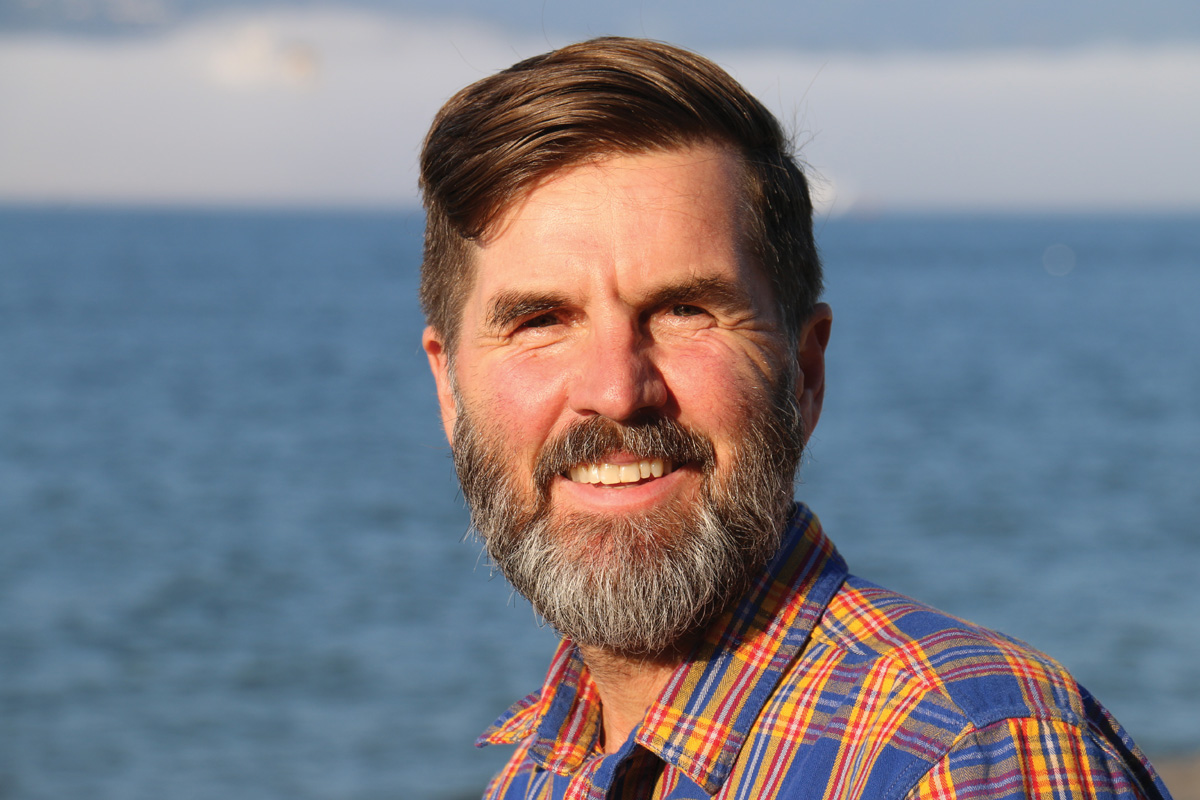Q What do you hope your new book The Way of the Wind: The Path and Practice of Evolutionary Christian Mysticism will achieve?
A To inspire and re-source people on their evolving soul paths. All of history is being drawn toward a future that will reflect the heart and soul of the Christ mystery. What I discovered, and what I write about in the book, is that evolution just happens naturally if we get out of the way.
You may unsubscribe from any of our newsletters at any time.
Q What is your definition of evolutionary spirituality?
A It’s a recognition that reality as we know it is being animated by an evolutionary current. This is true on the cosmological large-scale structure of the universe. It’s true biologically. But it’s true on a human level, too. The great mystery is living and wanting to transcend itself through us toward greater expressions of beauty, truth and goodness. And so evolutionary spirituality says that, for lack of a better word, God is implicate, intrinsic to that evolutionary push. What I do is bring that perspective to interpret and unlock some of the deeper lineages of the Christian mystery. I bring that perspective to try to interpret scripture, for example, Jesus’ teachings.
Q You express the following thought in the middle of the book: “It is not inevitable that the future will be more glorious.” Tell me more about that.
A One of the raps against evolutionary spirituality is there’s a kind of assumption that evolution is on a linear track towards the good and the beautiful. But I’m saying it’s not necessarily so. This iteration of our species could come crashing down if we don’t wise up [environmentally, socially and spiritually]. Any kind of meditative practice that has been part of the church since its inception is a way to create spaciousness. We tap in to the source of all that there is, which is God, and we experience transformation in self. The problem is, we have our id and our ego trying to prove ourselves, trying to gain status, be liked by others, and our consciousness contracts, and we lose touch with our soul.
Q You wrote about Jesus’ urging followers to reject status, security and sustenance to follow him. I look around, and I see so many people who are desperate for those very things. Is that what you see?
A I do. We see a society right now that is living without any of the felt presence of God. There’s no trust that you and I will be taken care of by the Earth, by the cosmos. We’re deeply taught that the universe is against us, and it’s only by our cleverness, knowledge and fighting for what’s ours that we’re going to be taken care of. I don’t need to be concerned about my future security, about my status, about how I’ll be sustained. What I need to do is pray, practice radical hospitality, move at the pace of life and trust.
Q You resigned from Vancouver’s Canadian Memorial United three years ago and formally retired last year. Are you comfortable with less yourself?
A It’s my path right now to live with that level of trust. Sometimes I wake up and all is well. And sometimes I wake up and I think, “How am I going to make enough money to pay the mortgage?” So I start worrying and strategizing. In the Western world generally, we live with radical distrust and radical disconnectedness, and as a result, we don’t live in radical gratitude for what is.
Q Generations Y and X have heard from the boomers over and over again that we should be happy with less. Why is what you’re talking about different?
A My experience of Generations X and Y is that they already have a perspective that’s shaped by a different worldview. They already don’t have the same expectations as boomers. So I find them more spiritually open. Less afraid. Younger generations are forced to live more in community. When you’re wealthy enough, the illusion of independence is strong. What’s missing is depth of community.
Q I was anticipating some warm words for the United Church. However, in your introduction in Way of the Wind, it seems like you’ve given up on the church. Would that be a correct understanding?
A The neglect of the interior dimension of our lives and almost exclusive focus on social justice? I think it’s taking its toll. There’s a neglect of spiritual practices that prepare the soul for engagement with social issues from a place of love. I love the people in congregations. But it’s hard to get real in the culture of church. Maybe it just takes more courage than most of us have. And I haven’t given up on the church as such, to the degree that the church is a community of people interested in living and being in community from a place of soul and therefore embracing the unconventional wisdom of Jesus. I’m all for church as that kind of spiritual community.
Q Where do you worship now?
A I don’t. I have a spiritual practice: daily meditation; I continue to write; and I have online conversations with a group that is practising this “we space.” This is cutting-edge evolutionary mysticism of sorts. One of the things that Jesus says is, “Where two or three are gathered in my name there am I in the midst.” What happens when two or three gather intentionally with consciousness is that they become a “we” that is more than the subtotal of the individuals. In my experience, a deeper intelligence emerges in conversation. There’s a deep structure to this kind of practice. That group is kind of my church.
Q Where do you find Canadians who have done their healing spiritual work, who are true adults?
A I’ve really struggled with this question. I have a difficult time finding grounded, mature, spiritual human beings. We confuse “elder” with “older.” Very few of us have actually been initiated into the world of adulthood so as to actually live with the kind of judgment that comes with being in touch with reality. The sign of a mature adult is this sense of an inner warrior that knows right from wrong, good from bad. This is where Jesus is. Some follow. Some walk away.
Q In evolutionary spirituality circles, it seems that a Christian perspective is rare. What do you bring to the table?
A There’s a problem with evolutionary spirituality: most people just focus on the glorious future that’s possible. I can get caught up in that too. What’s missing is the Christian dimension of the cross. Which is not just about a theology of glory, but a theology that it’s often through our suffering that we develop heart intelligence.
Q In the book, you called it “the theology of fragility,” and you talk about it in terms of empathy. Can you elaborate?
A You have to do the work to develop real empathy. There’s a cost to evolving: if you want your soul to cross the line, there’s no way around emotional work. Face that deep pain, and you gain tremendous compassion for yourself. You feel compassion for those who have hurt you because they were hurt themselves. To really make yourself available to consciously create a new future, you have to do that work.
This interview has been condensed and edited.
This story originally appeared in the March 2016 issue of The Observer with the title “Interview with Bruce Sanguin.”














